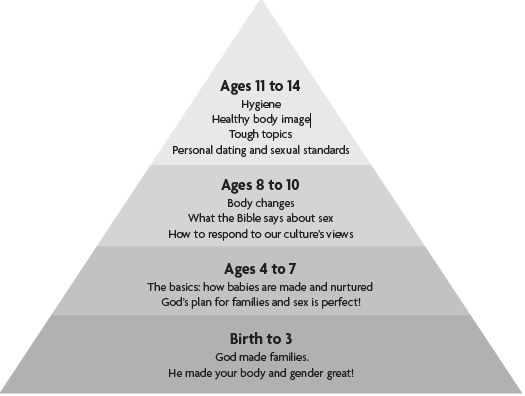
As I’ve mentioned, oh, 76 or so times, I have four teenagers in the house. Which means we have very little of some things (leftovers, tranquility, time, clean laundry), and a lot of other things (drama, chips and salsa, deodorant, hormones).
And as the culture around them accelerates to 5G-speed–despite my kids’ lack of a fully-developed frontal lobe–my husband and I are working hard to keep communication open.
31 CONVERSATION STARTERS FOR TEENS TO TALK ABOUT WHAT’S REALOne person likened the teenage years to a space shuttle losing contact with the control center as it re-enters the atmosphere. You try to have the whole thing aligned before radio silence. But man, everyone’s biting the ends of their pencils until that next transmission.
That said, for teens, the stakes of their decisions skyrocket. At the risk of sounding disparaging to teens–who have so much to offer the world–these kids were eight years old five years ago. And they now possess the capability to hamstring their lives with a single decision.
(You might like this article I penned for FamilyLife.com on Parenting and Control: How Not to Hold On Too Tight.)
Sex is one of those areas where as a parent, you feel like your kids have been given the keys to a Camaro, but they’ve only learned driving techniques online. And they’re still sitting on a phone book to reach the steering wheel.
So maybe you’re wondering when to tell kids about sex. When’s it too early? When’s it too late?
I’m snagging excerpts for this one from my book, Permanent Markers: Spiritual Life Skills to Write on Your Kids’ Hearts.
When to Tell Kids about Sex
I remember one Christian mom laughing, telling me her elementary-aged kids saw a commercial mentioning sex, and asked her what it was.
She insisted the commercial was about grocery sacks.
But really–when’s a “good” time for kids to ask? Do we want them to figure out we didn’t tell them the truth when they asked about sex?
Pause. Where do we want our kids to get this information?
Parenting kids toward holy sexuality involves a series of conversations to shape their worldview and create open, truthful, shame-free communication.
One of my own “whys”
On my African back porch one afternoon, a friend’s and my own fingers curled around toasty warm mugs of ginger tea that exhaled ribbons of steam. She sort of asked the air around us if it was called rape if a boyfriend forced you. My grip on my mug tightened as her anecdote continued.
But I never talked to my parents about it. They left sex ed to my fifth-grade teacher, and my boyfriend was the one who showed me the rest. My family doesn’t talk about that kind of stuff.
I grieved with my friend, recognizing the gravity of what was taken from her.
Later, the situation begged the question: Is there anything on my parental “off-limits conversations” list?
So this influences how I respond when my kids ask questions. I try to wring the freak-out from my face, and review my mental list of How to Deal: What I Believe About Awkward, Hairy Topics with Children.
• I want to be the go-to gal (just as my hubby wants to be the go-to guy) for this stuff with my kids. How I deal with it now affects whether they ask later. It will only get funkier as they get older.
• I want to help them construct their own biblical worldview, assembled not once but piece by piece as we apply each issue to real life, with Scripture informing them. As in, not Google or the kids at the back of the bus autofilling the blanks in their minds. Do I really want my kids to wing it in this area?
• Evil is not only outside our kids. It’s within us because sin is part of us. Therefore, protecting my kids isn’t enough. Working with the Holy Spirit, I must shape their consciences.
Protection from the Facts is Not the Goal
Of course, we should have these conversations privately so our kids aren’t perpetually wishing they could burrow beneath the carpet. But questions are an open door to talk about Scripture as we “walk by the way” (Deuteronomy 6:7) to the maximum level of what’s age appropriate.
Some of the best parents I know aren’t necessarily those who withhold information in an attempt to protect their kids. They don’t glance around for a fire escape from the awkwardness. They take their child’s hand and show them how to navigate difficulty. These conversations secure trust and honesty. They communicate, I will always tell you the truth. We’ve got a good thing going here, so come to me with anything.
Talking to our kids gives them vocabulary to talk maturely about emotions, sticky situations, money, sex, and real life. They’re then less likely to be swayed by peers or lies in the midst of their decisions and more likely to know how the Word applies to every situation.
So watch your tone like a hawk.
Will kids get the idea sex is “the Dirty” (as one friend’s parents called it), or shameful? Or that God made our genitals and desires on purpose, for deeply rich marriage relationships? Will we honor marriage and sex (Hebrews 13:4)?
But this is another area where even the most careful, wholehearted, wisely informative training still involves leaving the results up to God. Our kids may make painful sexual decisions—or fall victim to someone else’s. Over and over, sexuality is an opportunity to trust and reiterate the power of God’s mercy and undeserved kindness to humanity. Sexuality can acknowledge he is always greater than human failure and frailty, a God drawing beauty from ashes.
When to Tell Kids about Sex: The Lifecycle of “The Talk”

As parents, we aim to uphold 100 percent of God’s holiness and 100 percent of our and his approachability and acceptance amid failure and tsunami levels of shame.
If our children experience homosexual temptation or transgender thoughts or get snagged in porn, will they distance themselves and go to elaborate lengths to make sure we never find out?
A pastor struggling with same-sex attraction writes, “Christians struggling with SSA often feel especially ashamed and embarrassed…We often feel too dirty to be in community with others, or to be in communion
with God.”
So with your tone and body language, throughout your kids’ lives and countless open, unshocked-face conversations, communicate essential truths:
- You are a deeply loved child of God. No matter what.
- You are also my deeply loved child. No matter what.
- You can come to me anytime.
- You can trust me to tell you the whole truth.
- Your gender is so valuable. Neither gender is better or more valuable.
- This isn’t something you need to be embarrassed about.
- Sex is good and created by God.
- Your body and desires are good. Using them the right way is important.
- If someone tells you not to tell about this, please trust me; come and tell me.
- We’re going to hold a high view of sex and your body, with some standards worthy of this gift, but I will not shame you when you mess up.
Read: “When to tell your kids about sex” is now. And it’s an ongoing conversation.
Got thoughts about the when and the how of The Talk?
I’d love to hear them. Join the conversation below.

Like this post? You Might Like
Fences, Sex, & Not-so-bad Boundaries
Guest post: The Hole Truth: Peer Pressure, Sex, and the Connection to Our Kids’ Identity








2 Comments
When Your Kid Embarrasses You: 4 Ideas - THE AWKWARD MOM - 2 years ago
[…] SHAME PARENTING vs GUILT EXPOSURE: Infographic […]
Talking to Kids about Sex--without Purity Culture - THE AWKWARD MOM - 2 years ago
[…] Don’t miss WHEN TO TALK TO KIDS ABOUT SEX […]